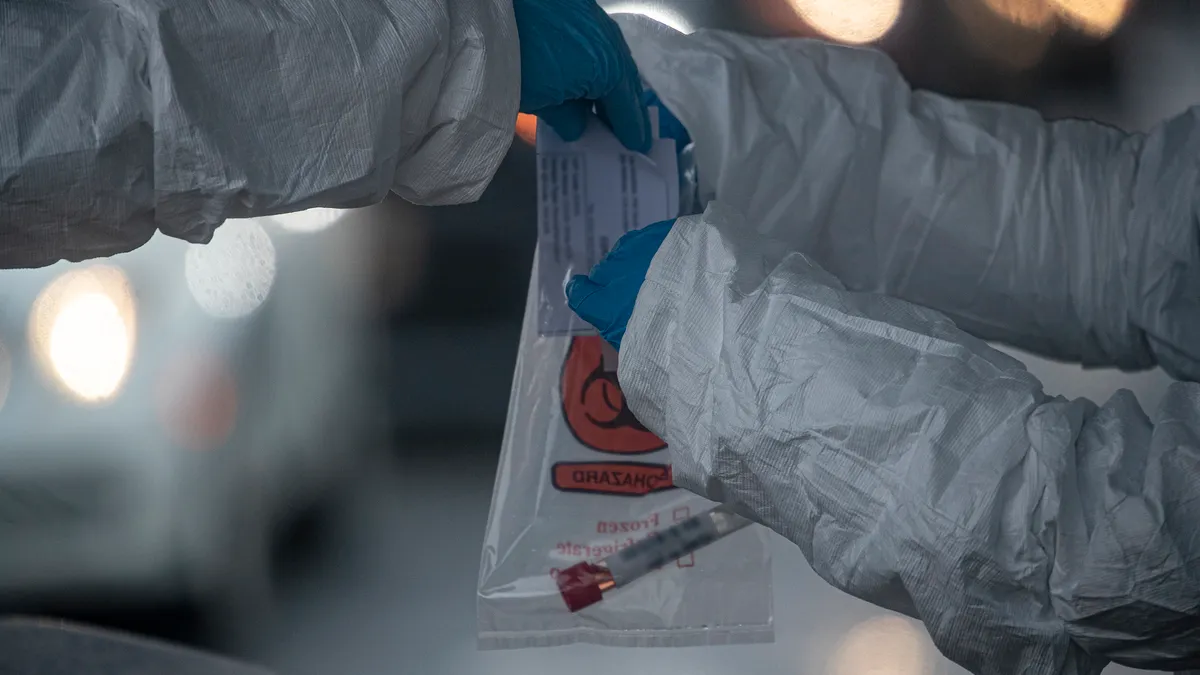Dive Brief:
- A slate of high profile former health officials from the Trump and Obama administrations are calling on Congress to include $46.5 billion in the next COVID-19 emergency relief legislation for contact tracing and isolation efforts that could allow the United States to begin to reopen the economy.
- They suggest allocating $12 billion to expand the contact tracing workforce by 180,000 people and $4.5 billion for using vacant hotels as self-isolation facilities. Another $30 billion would be used to give income support to those who must isolate.
- Primary care physicians should be the main referral source for testing and contact tracing with a separate payment code, according to a letter signed by a bipartisan group that includes former CMS Administrator Andy Slavitt, former FDA Commissioner Scott Gottlieb and Atul Gawande, the CEO of Haven.
Dive Insight:
As most of the country has endured shelter in place restrictions for several weeks, some states are taking steps to open up certain businesses again, even as the number of positive COVID-19 cases climbs toward 1 million. Experts
agree one key factor in allowing this transition to happen safely will be understanding who has tested positive for the novel coronavirus and the ability to notify those who have come into contact with them.
"We believe the direct impact of this investment, along with an adequate testing and containment infrastructure that links in health care providers and businesses, will have a significant economic impact, allowing Americans to get back to work safely and quickly, create employment, stabilize our healthcare system, and stimulate the hospitality sector," according to the letter.
The officials recommend the funding be distributed to states through block grants twice annually based on plans they submit to HHS with information on case counts, testing capabilities and data tools for immunization tracking.
States should be able to use up to 10% of the funds "for expenses directly supporting the success of this effort, such as training, public communications, and food delivery," according to the letter.
Contact tracing efforts, however, could be hindered by consumer privacy worries. In a recent poll, half of those surveyed said they would download an app on their phone to notify them when someone in close contact has tested positive for COVID-19, but 53% said they would not share that information with public health officials.
Another sticking point is adequate testing abilities. The letter does not directly address how to ramp up testing, but current public health officials have admitted the level is not where it needs to be to safely open back up in most areas.
The U.S. performed nearly 256,000 tests Sunday and the past few days have shown a jump in daily testing numbers, according to The COVID Tracking Project. But Ashish Jha, director of the Harvard Global Health Institute, has said the country needs to be doing a minimum of 500,000 tests a day.
Recap:
— Ashish "I'm still focused on testing" Jha (@ashishkjha) April 27, 2020
Testing was stuck forever. Now finally starting to break loose!
4 day-trend gives me hope we may be making progress
We still have a long way to go. But progress!
If we can ramp up testing a bunch more, we can more safely ease distancing restrictions.
Fin
Patchy national IT infrastructure adds to the difficulties. Gottlieb and others who also signed on to the Monday letter put out a plan a few weeks ago for a national surveillance system to track the spread of the pandemic, but incomplete data and overlapping government reporting requirements could hinder such efforts.
Still, some states like Massachusetts and New York are beginning to hire contact tracing workers as they ponder how stay-at-home restrictions could be lifted.












